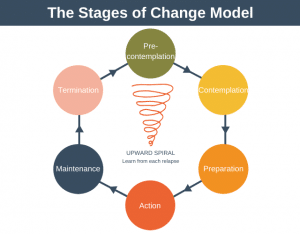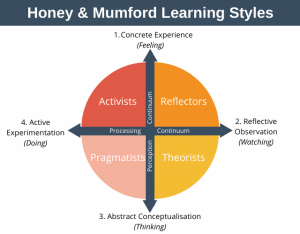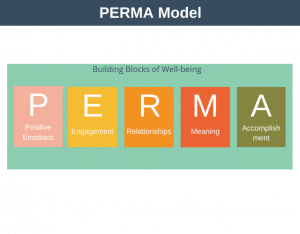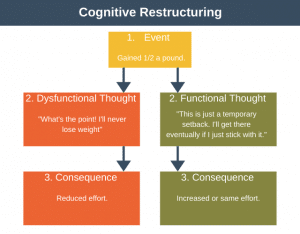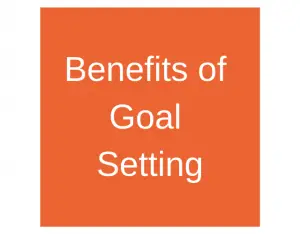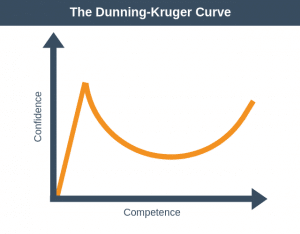The 12 Rules for Life is a book by Jordan B. Peterson that touches on many topics including science, philosophy, psychology, religion, and politics. It is a self-help book, and at its core are two key concepts.
Firstly, that you should take personal responsibility for your life and the life of those in your charge (your children).
Secondly, that by living a “good” life and being a “good” person you create meaning and purpose in your life.
Jordan B. Peterson is a Canadian clinical psychologist and a professor of psychology at the University of Toronto.
A Word of Caution
Firstly, Jordan Peterson is a controversial character. He has received criticism for his comments concerning free speech and political correctness.
Secondly, although the 12 Rules for Life isn’t religious, Peterson refers to the Bible throughout the book.
So, if you’re willing to suspend judgment and keep an open mind, then let’s jump in and look at each of the 12 rules for life.
12 Rules for Life Book Summary
Rule 1: Stand Up Straight With Your Shoulders Back
Our subconscious brain is constantly scanning our environment to figure out where we fit into the hierarchy of society.
If we see people responding positively to us and looking to us for direction then serotonin is released to our brains, we feel good, and we elevate how we see ourselves.
Conversely, if we see people responding negatively to us, or treating us as a subordinate, less serotonin is released to our brains and we lower how we see ourselves in the world.
Action Steps:
Because everyone is looking at everyone else to access their place in the world, you can use this to your advantage.
To do this all you have to do is stand up straight with your shoulders back. Fix your posture, act confident, and others will assume you are confident. They’ll start to treat you better and that magical serotonin will be released to your brain making you feel better too. This, in turn, will make you more likely to feel like standing up straight. You’ll have created a virtuous cycle.
You can think of rule 1 as being a subset of fake it until you make it. Only, in this case, it’s act confident until others see you as confident, and eventually, you see yourself as confident too.
12 Rules for Life PDF
If you’d like to download this book summary as a PDF you can do so by clicking here.
Rule 2: Treat Yourself Like Someone You Are Responsible For Helping
Many people are kinder to their pets than they are to themselves. One reason for this is that you are your own worst critic. Each of us is patently aware of our own flaws, and the mistakes we make because of them. This leads almost all of us to mentally berate ourselves for our shortcomings.
This, in turn, can lead to us sabotaging ourselves daily. Perhaps you don’t take care of your health, or perhaps you keep making a promise to yourself that you never keep.
We need to change our thinking from believing that we are not worth helping, to believing that we have much we can give and therefore plenty to live for.
Action Steps:
Start being kind to yourself. To do this:
- Begin by writing down your values and principles, and then try to stick to them.
- Reward yourself for sticking to them, and whenever you do something that you don’t want to do. If you do achieve your reward, make sure that you follow through and actually give yourself the reward. Many people don’t do this!
- If you fail at something, don’t beat yourself up. Be kind and try to do better next time.
Rule 3: Make Friends With People Who Want The Best For You
Most of us don’t give much thought to how we form friendships. Usually, friendships are formed around something you enjoy doing. Maybe you enjoyed studying together, or maybe you enjoyed partying together.
You may be familiar with the phrase, “you are the average of the five people you hang around with”. What does this phrase say about you?
Good friends will pull you up. They won’t tolerate negativity or bad behavior. Bad friends pull you down and sometimes facilitate or encourage bad behavior. Often this is to make themselves feel better about themselves.
If you want to improve yourself you may need to improve your friends.
Action Steps:
To make friends with people who want the best for you:
- Start by auditing your 10 closest friends.
- Ask which friends are pushing you to be better and which are pulling you down.
- If you do have some friends pulling you down ask yourself if they want to be helped. You can’t help people who don’t want help. So, if you have friends like this maybe you should walk away.
Rule 4: Compare Yourself To Who You Were Yesterday, Not To Who Someone Else Is Today
We’ve already discussed how we compare ourselves to those around us all the time. And how, based on what we see, our serotonin levels increase or decrease.
More serotonin can make us feel confident and in control, whereas less can make use feel less confident and out of control.
With the advent of the internet, we are connected to billions of people across the globe. If you compare yourself to those you see online, it doesn’t take long to realize your ineptitude.
For example, suppose you think you’re a good husband. Well, you’ve probably got multiple of friends on Facebook who appear to be even better husbands. You think you’re a good singer? There are hundreds of better singers on Youtube. Comparing yourself to these singers will make you look incompetent.
When you encounter people everywhere that seem better than you, you are more likely to give up and start to feel there is no point in even trying.
Action Steps:
- Realize that there will always be someone who is doing better than you. So there is no point comparing yourself to others. In other words, stop comparing yourself to who someone else is today.
- Instead, start comparing yourself to who you were yesterday.
- Look at how you behaved, worked, looked after yourself, and engaged with others. Try to find an area that you can improve just a little today.
- Over the long term, it can create massive change in your life.
- By doing this every day, you’ll forget to compare yourself to others as you’ll be too busy comparing yourself to who you were yesterday.
Rule 5: Do Not Let Your Children Do Anything That Makes You Dislike Them
Rule 5 of the 12 Rules for Life is all about how to parent.
Children constantly test the boundaries of behavior in order to learn the rules of the world. It is your job as a parent to teach your child what is acceptable and what isn’t.
If you don’t set the boundaries then your children will learn the wrong boundaries of behavior, because they haven’t received the feedback they need. They will grow up to be adults who are poorly adjusted to the norms of society. This will impact their happiness.
If you don’t teach your children the rules then society will punish them for you!
Action Steps:
- Be clear with your children about the rules.
- Don’t arbitrarily change the rules as your whims or moods dictate. This will create confusion.
Note
Peterson gets a little controversial here in advocating force if necessary and also highlighting that two-parent families are better for raising kids than single-parent families.
Rule 6: Put Your House In Perfect Order Before You Criticize The World
It’s easy to be a critic. To sit at home on your couch pointing out flaws in others, their work, and their behavior. Sometimes this extends to blaming others for the situation in life in which we find ourselves.
It’s an easy excuse to blame others as it takes the responsibility away from us.
Tend to your own wrongs before you point fingers at others.
Action Steps:
- Do you know of something you are doing that is wrong? Maybe you’re doing something that is bad for your health or your wealth.
- If you do then stop doing it today.
- Don’t waste time questioning what you’re doing or trying to get to the root cause, simply try to stop today if you know it to be wrong.
Rule 7: Pursue What Is Meaningful, Not What Is Expedient
There may be no inherent meaning for your existence or mine.
In the face of this potential reality, should you seek out pleasure today? Should you avoid hard things today even though you know in the long run they might make your life better?
No, because although there may be no inherent meaning in your existence you can make your own. Doing good and delaying gratification can provide your life with meaning. It can make you happier.
Action Steps:
- Pay attention to the world around you.
- Ask how you can I make the world a little better today.
- Ask what should you be doing today to make your life better in the future.
- Think bigger. How can you make the world a lot better place? What kind of person must you become to achieve this? The bigger the change you wish to make the bigger the sacrifice you might need to make, but the more meaning your life will have.
Rule 8: Tell The Truth, Or At Least Don’t Lie
There are different types of lies:
- We may lie to get what we want.
- We may lie to avoid hurting others.
- We may lie by omitting information.
- We may even lie to ourselves.
We lie in the short-term to avoid pain. This may actually work in the short-term, but it weakens our character because we’re not acting in accordance with our values. Things get even worse when we lie to cover up previous lies.
People with weak characters tend to get run over when adversity strikes, and adversity comes to us all at some point.
Peterson believes that any improvements you make today to who you were yesterday (rule 4 of the 12 Rules for Life) will be capped and limited by how truthful you are today.
Action Steps
- Peterson believes that dishonesty will always come back and bite you.
- Because of this, you should always tell the truth, or at least, don’t lie.
- Ask yourself what hard truth are you avoiding. What uncomfortable conversation do you need to have? Both with yourself and with others.
Rule 9: Assume The Person You Are Listening To Might Know Something You Don’t
You can’t really learn anything by talking, but you can learn a lot by listening.
Having someone listen to you and being understood is a basic human need. So by listening to someone you are giving them a gift as you are helping them fulfill their basic human need to be understood.
Truly listening to another person also helps build trust with that person.
Action Steps:
- Always start your interactions from the position that the person you are talking to has reached has reached a thoughtful and considered position, based on their life experiences.
- Summarize their core message and play it back to them to ensure you have understood what they are telling you. This will not only clarify your thinking but theirs also.
Rule 10: Be Precise With Your Speech
Precision can help remove anxiety. Anxiety can occur when we face the unknown.
Perhaps you have a persistent pain in your body. What could it be? Well, it could be nothing or it could be terminal. Or it could be somewhere in between these two extremes.
The possibilities cause our brains to race and so our anxiety increases. If you visit your doctor to find out what is wrong your anxiety will reduce no matter how serious the issue. This is because an unknown will become known.
Action Steps:
- If something is bothering you, get precise.
- Write down what exactly is bothering you? What do you want? Why?
Rule 11: Leave Children Alone When They Are Skateboarding
We are hard-wired as humans to enjoy an element of risk.
If we take a small risk and succeed we acquire just a little bit more competence and skill. This competence will serve us well later. It is competence or lack of competence that creates our place in society.
The only way for children to develop into functioning adults is to be exposed to danger. While skateboarding might seem like a dangerous activity, it is that danger that children are seeking. It is helping them to build competence.
Action Steps:
- Leave your kids alone when they do things with some element of danger. They need to grow up.
Rule 12: Pet A Cat When You Encounter One On The Street
Life is tough.
Sometimes bad things happen to good people.
You can hate yourself and the world too because of this. Or you can just accept that suffering is a part of life.
By paying attention to little things you can brighten up any bad day. But you have to be looking out for them.
The cat in this rule is a metaphor for noticing the little things in life.
Action Steps:
- Notice the little things and take pleasure in them.
- Pet a cat, buy a coffee, or maybe take a new route home from work.
12 Rules for Life Summary
If you’ve made it this far you’ll know that Peterson’s 12 Rules for Life cover a vast array of topics.
Most of the rules are explained in the book by means of anecdotes. So if you’d like to understand the rules better I’d recommend you purchase the book to read yourself.
Personally, whilst I enjoyed 12 Rules for Life and found it thought-provoking, I found it a hard read. I think this was because when reading the book I often felt like what I was reading wasn’t connected to the rule I was supposedly reading about. Other times, I simply felt like I didn’t agree with what he was saying.
So, on balance I’m scoring the 12 Rules for Life 7 out of 10.
